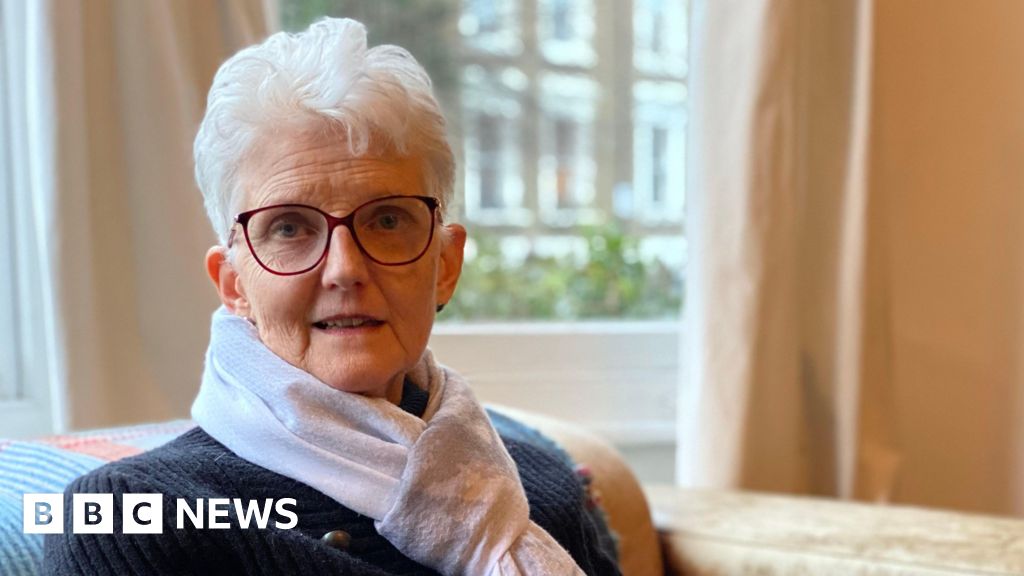Youre sold a lie: How do you spot a cult?
- BBC News
For seven years of her twenties, Gillie Jenkinson was in a religious cult. She recalls being told what to eat, when to sleep and what clothes to wear.
"It was completely coercive, controlling," she says, going on to add that the group operated from an "ordinary" looking terraced house.
She remembers giving all of her money to the group, believing it would go towards their mission of "saving the world".
"None of that happened, we didnt save anybody or do anything with it, but youre sold a lie," she explains.
After leaving the cult, she sought mental health support to help process her experiences but she was unable to find any trained therapist with experience in helping cult survivors.
In the end, she decided to train as a therapist herself and has now been practising for around 30 years, specialising in helping people who have left cults.
This led her to appear in the two-part BBC documentary Inside the Cult of the Jesus Army, which sees her work with people brought up in the now-defunct religious cult to recognise cult dynamics and identify the groups impact on them.
The BBC revealed allegations of widespread child abuse in the group, which disbanded in 2019.
The Jesus Fellowship Community Trust, which has been winding up the groups affairs, said it was sorry for "the severely detrimental impact" on peoples lives.
Speaking to the BBC, Jenkinson explains how to recognise a cult and why more support is needed for those who leave.
"Its not always easy to identify a cult," Jenkinson says, explaining that there isnt one type of person that joins a cult, they dont dress a certain way and they can operate from "ordinary" houses.
The Family Survival Trust (FST), a charity that offers support to those affected by cults, defines a cult as a system controlled by a charismatic and authoritarian leadership that is "rigidly bounded" and supported by a fixed set of beliefs. It involves brainwashing designed to isolate, control and exploit followers.
Cults do not have to be religious. Linguist Amanda Montell, author of Cultish: The Language of Fanaticism, explains people can "erect a cult around anything, as long as you can inject it with fear and an us-versus-them mentality".
Montell adds that these groups dont even have to take place in person anymore and says they are becoming "easier" to find because of the internet, adding "so many cults do their recruiting online".
While cults can be hard to spot, Jenkinson and Montell note some "red flags" people can look for:
Jenkinson encourages people to listen to their "gut feeling" if they think something is wrong, to listen to critical voices and to investigate the group online. "It might save you years of pain," the psychotherapist says.
Jenkinson also strongly discourages relatives from giving a group money because it likely wont go to their loved one. However, she encourages family and friends to keep lines of communication open and to ask "genuine, critical thinking questions".
However, Jenkinson says greater support and understanding is needed for people who have left cults, explaining: "it needs destigmatising because people need help when they come out".
She adds that there should be provision within the NHS to offer specialist counselling for those leaving cults.
A spokesperson for the Department of Health and Social Care says as part of its 10-year health plan it "will increase access to talking therapies to support patients".
Jenkinson adds that changes to the law are "desperately" needed to protect those in cults. Currently in England and Wales, coercive control is illegal in intimate or family relationships. However, Jenkinson says this needs to be extended to include the coercive control that occurs in groups like cults.
A spokesperson for the Ministry of Justice says: "Cult leaders can already be prosecuted for a number of offences including fraud, false imprisonment or harassment."
You can watch part two of Inside the Cult of the Jesus Army on BBC Two Sunday 3 August at 21:00 BST or both episodes are available on BBC iPlayer now.